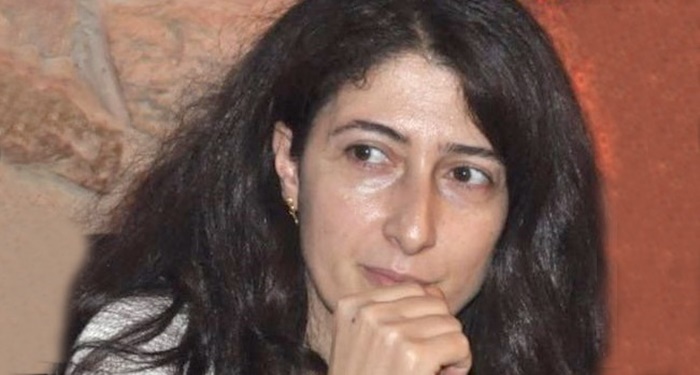Ayten Öztürk, who was abducted from Lebanon in 2018 by Turkish intelligence, testified in an İstanbul court yesterday about the torture and inhumane treatment she was subjected to at a black site, the Stockholm Center for Freedom reported.
According to Turkish media, Öztürk said she was both physically and emotionally traumatized by the torture and had dropped to 40 kilos. “I counted a total of 898 wounds on my body [as a result of torture],” she said. “They tortured me as if it was a routine thing.”
Her lawyer, Seda Şaraldı, demanded her client’s release, saying she was in need of treatment. Yet, the İstanbul 3rd High Criminal Court denied the request.
Öztürk was detained in Lebanon and illegally transferred to Turkey on March 8, 2018. After being held at a black site for six months under torture and ill-treatment, she was left in an abandoned field where she was “officially” detained and taken to Ankara police headquarters.
She is accused of links to outlawed the Revolutionary People’s Liberation Party/Front (DHKP/C), a militant Marxist group, based on witness testimony. DHKP-C is listed as a terrorist organization by Turkey, the United States and the European Union. The prosecutor is demanding an aggravated life sentence for Öztürk.
In her testimony Öztürk said she was being held in pre-trial detention despite lack of evidence in order to prevent her from showing the signs of torture.
“They didn’t even investigate my claims,” she said. “Counterterrorism police would talk to the doctor before he or she examined me. The doctor wouldn’t even look at me during the medical.”
State-sponsored abductions and the forcible return of Turkish nationals have become common practice in recent years.
The Turkish government is accused of engaging in the systematic practice of state-sponsored extraterritorial abductions and forcible returns to Turkey, with at least 100 Turkish nationals from multiple states that are dependent on Ankara for financial, political or humanitarian support including Afghanistan, Albania, Azerbaijan, Afghanistan, Cambodia, Gabon, Kosovo, Kazakhstan, Lebanon and Pakistan removed to Turkey.
Some victims of forcible return have said they were subjected to torture in unknown locations for months. They claimed their families and lawyers had not heard from them during that time, and they were later handed over to the police.
In different cases the UN Working Group on Arbitrary Detention (WGAD) concluded that the arrest, detention and forced transfer to Turkey of Turkish nationals were arbitrary and in violation of international human rights norms and standards.

